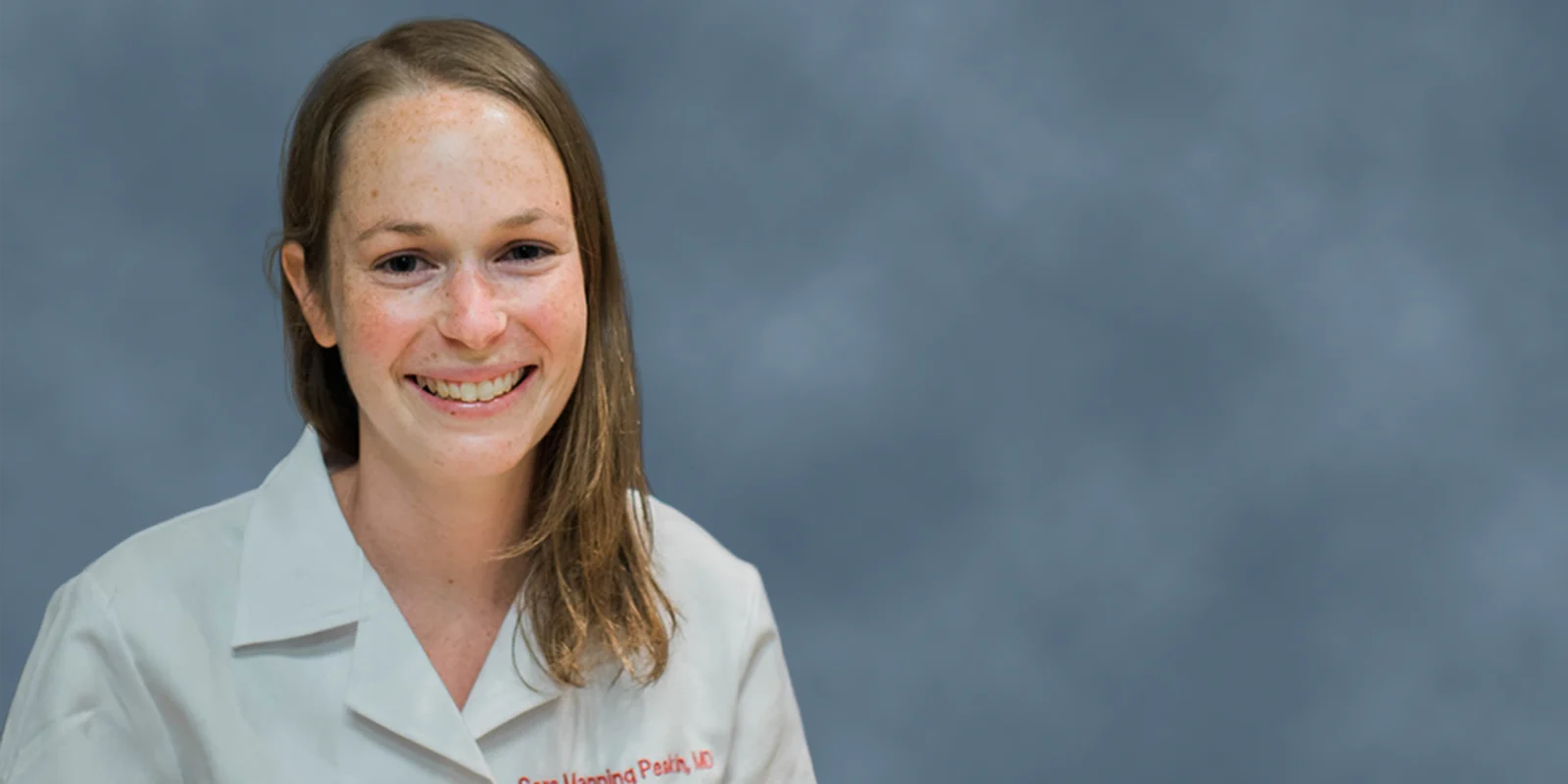
Name: Sara Manning, MD
Specialty: Neurology
Education: University of Pennsylvania Health System, Perelman School of Medicine at the University of Pennsylvania
Areas of Expertise: Neurology
Current Position: Neurologist
1. Why did you choose neurology?
I quit my PhD and returned to medical school with little idea of what I liked. I’d spent most of my clinical rotations waiting to ask “is there anything else I can help you with?” Yet when I saw patients with strange dementias, curious movements, strokes, and seizures, I wanted to go home and read about them. I thought about them on weekends and looked forward to new cases on Monday mornings. There’s lots of ways to explain why any specialty is better than another, but I chose neurology because it was the only topic I wanted to study in my free time.
2. What area of neurology is changing most rapidly?
With medications like nusinersen for spinal muscular atrophy, molecular neurology has evolved from diagnostic to therapeutic in the last few years. Hopefully we’ll see DNA- and RNA-targeted medications for more common neurologic diseases in the future.
3. What is the last journal article or piece of research that significantly changed your practice?
The DAWN trial extended the window for stroke treatment, so people who used to present too late to undergo an intervention are now receiving life-altering care. Practically, this means more patients with stroke-like symptoms need to be seen right away, even if it’s many hours since they were last known normal. While we used to treat most strokes with optimistic observation, we can now offer chemical or mechanical clot removal for a large proportion of patients.
4. What are your research interests?
Right now I’m focused on writing, but I’m hoping to find something that fuses my interest in narrative with my planned sub-specialization in cognitive neurology.
5. Outside of your daily practice, do you have any personal or professional projects that you’re passionate about?
I began writing while I was working night shifts as an intern. Writing about medicine helped me process what I was seeing at work, and writing about non-medical topics helped me to focus energy on parts of my life that would have otherwise been buried by residency. Currently, I’m learning how to write about cognitive neurology for non-medically trained folks. I’m hoping to use historical medicine and patient stories to help people become fascinated by their own brains.
6. What is a common misconception that other clinicians have about neurology?
Neurology is often ridiculed as a “diagnose and adios” field, but this has changed over the past decade. We now have medications or procedures for nearly every neurology subspecialty. While therapies in cognitive neurology have lagged behind other areas, there is enormous value in helping people understand what to expect with neurodegenerative diseases.
7. Who are your mentors?
I’ve been overwhelmed by the support I’ve gotten for writing from across our neurology department. Multiple attendings have spent hours helping me understand the nuances of their fields and connecting me with patients who want to be interviewed. Dr. Michael Rubenstein and Dr. Dina Jacobs have been particularly helpful with navigating life as a neurologist-in-training and keeping perspective on work-life balance.
8. What’s the best advice you’ve ever received?
Professor Ruth Chang from Rutgers has a TED talk about how to make big decisions where she explains that, if a decision really is that difficult, it might mean both options are genuinely, equally good. It’s the most versatile and comforting tip I’ve ever gotten.
9. What has been your most gratifying moment of being a clinician?
Helping people navigate end-of-life decisions has been incredibly rewarding. I’ve found immense fulfillment in allowing decision-makers to see palliative care as a tool to show love and support, rather than something that evokes guilt. Creating a meaningful death experience changes the lives of surviving family and friends.
10. How do you unwind after a challenging day?
For most of my time in Philadelphia, I’d go running on the Schuylkill River Trail or take our husky-shepherd mix to the dog park. Now that I’m 39 weeks pregnant, I’ve been putting my feet up and watching TV.
11. How do you motivate patients to do what’s best for their health?
People have an inherent interest in staying healthy. When they don’t practice healthy behavior, I try to ask what’s stopping them. Everyone has different barriers to health, and understanding each person’s hurdle is the only way to help them make lifestyle changes.
12. What are your favorite Doximity features and how have they helped your productivity (Dialer, DocNews, CareerNavigator, e-Fax, etc.)?
The careers tab is really helpful for thinking about how my professional future might look, as far as kinds of jobs and what to expect for salary. It’s great to have a website with multiple data points that are easy to view.






